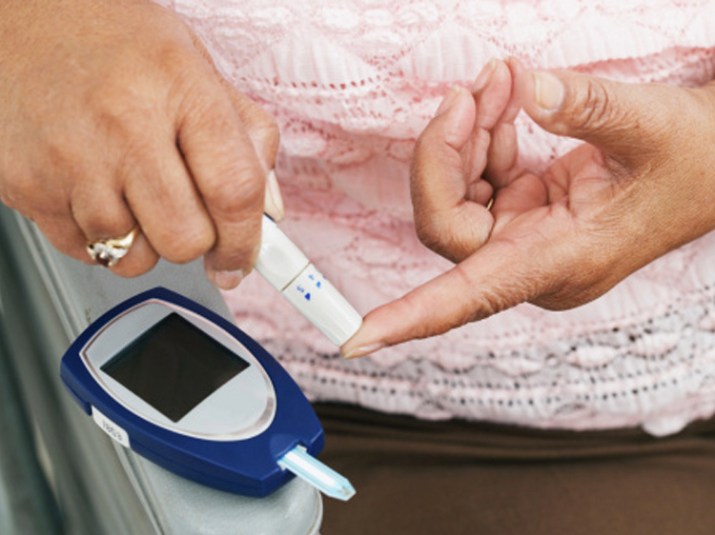Diabetes Might Actually Be Five Different Diseases, Not Two Types

We’ve all heard about type 1 and type 2 diabetes, but what if diabetes isn’t really just one condition with two “types” after all? As it turns out, diabetes might actually be five different and distinct diseases, according to recent research. Though more studies are needed to investigate further, these latest findings could revolutionize how doctors detect — and treat — diabetes in the future. In honor of National Diabetes Awareness Month in November, we’ve rounded up what you should know.
The research, published in The Lancet Diabetes & Endocrinology in February, analyzed past studies of 14,775 patients with type 1 and type 2 adult-onset diabetes in Sweden and Finland. By using several measurements like body mass index (BMI), ages of patients at diagnosis, and insulin resistance levels, the researchers came up with five separate disease profiles — including three severe and two mild forms of the condition.
Among the severe forms, there was one group with severe insulin resistance and a significantly higher risk of kidney disease, another group of relatively young insulin-deficient people with poor metabolic control, and a group of insulin-deficient patients who had a form of diabetes formerly called type 1 diabetes, or latent autoimmune diabetes in adults (LADA). Among the mild forms, there was one commonly seen in elderly people, and another mainly seen in obese people.
Since all five forms were genetically distinct, the researchers say this is enough to suggest there are five different diseases that all affect the same body system, rather than the same disease at different stages of progression. Disturbingly, researchers found that many people in the study weren’t getting proper treatment for the specific characteristics of the disease they had.
“Evidence suggests that early treatment for diabetes is crucial to prevent life-shortening complications,” said senior researcher Leif Groop, PhD. “More accurately diagnosing diabetes could give us valuable insights into how it will develop over time, allowing us to predict and treat complications before they develop.”
It’s important to keep in mind that there are some limitations with this study; there’s no evidence yet that the five forms of diabetes have different causes, and the study only included patients in two countries. A much wider study is needed to investigate other groups of people.
That said, this study seems like a promising start to developing more personalized treatments for people with diabetes. Anything that puts the needs of the patient first is something we’re totally on board with — and we can’t wait to learn what else they find out.
More from FIRST
Loneliness Linked to Higher Risk of Diabetes, Study Suggests
Women Who Breastfed Cut Their Diabetes Risk Nearly in Half, Study Finds
93 Percent of Receipts Contain Chemicals Linked to Diabetes, Asthma, and Cancer













